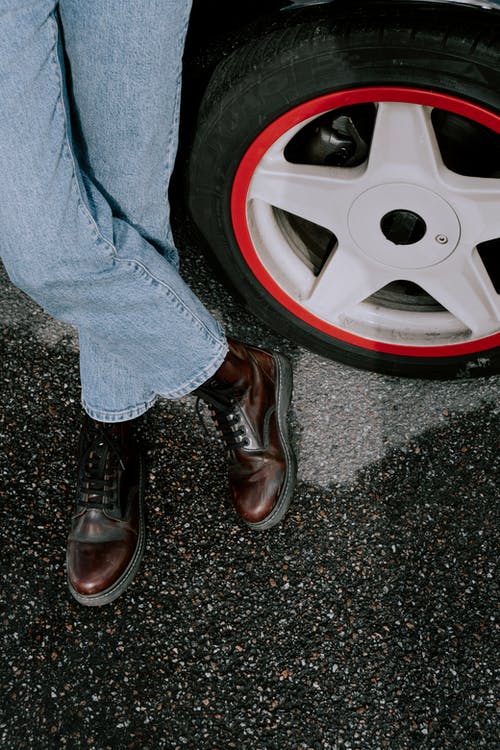Woman seeks $50 million and class-action status of tire chalking lawsuit.
Lawsuits have emerged in San Francisco, California, over the city’s use of tire chalk to enforce parking violations. One of the suits, filed earlier this month by plaintiff Maria Infante, is seeking $50 million and class-action status after a San Francisco parking enforcement officer gave her a $95 ticket. The argument is that the use of chalk is a violation of an individual’s Fourth Amendment right to be free of unreasonable searches and seizures.
“The officers,” Infante’s suit alleges, “systematically places chalk or a similar substance on vehicle tires without the owners’ consent, surreptitiously to obtain information used as the basis for parking citation.”
The second case, filed the same day against the city of San Leandro, seeks $5 million and similar status for anyone whose tires were chalked without their consent. Plaintiff Akeel Nasser has received four parking tickets for exceeding a two-hour limit, costing him $180, according to court records. His argument is that the use of chalk is merely a way to fill the city’s pockets.

Eduardo Roy is a San Francisco attorney who filed both suits and indicated he might bring more. The already filed suits rely on a recent decision by the Sixth Circuit Court of Appeals in Cincinnati, Ohio, which ruled in favor of a Michigan woman with more than a dozen parking tickets.
Judge Richard Griffin, nominated to his post by former U.S. President George W. Bush, ruled in the Cincinnati case and published his opinion on August 25. Griffin contended that “chalking constitutes an unreasonable search under the Fourth Amendment.” He and the other two judges rejected the city’s argument for an exemption and the case is still pending.
According to UCLA Professor Donald Shoup, “It seems the question now is not whether tire chalking will go away, but how, and how soon. The form of enforcement emerged in the 1920s, deployed by a first generation of parking officials. Back then, the concept was the same: Chalk was a substance that would rub right off a car that moved; a person who overstayed would bear the mark.” He added, “In the 1920s, they got used to chalking, because it’s easy to do. It’s just surprised me that it’s lasted so long. Municipal parking enforcement has been the most stagnant industry in the U.S. What other practices haven’t changed in a hundred years?”
Many cities across the U.S. have since made use of GPS-enabled license plate scanners and data analytics tools.
“Sophisticated new systems can enable motorists to pay parking fees remotely, negate the need for individual meters, and alert police to vehicles that have been reported stolen. They can even pinpoint ‘serial offenders’ who routinely occupy curb space for too long,” Shoup said.
The San Francisco City Attorney’s Office spokesperson John Coté responded to questions about the way the city enforces parking violations, stating simply, “Parking control officers have a tough job, and they do it lawfully and thoughtfully to help keep the city moving so people can get where they need to go.”
Sources:
A woman is suing S.F. for $50 million over a parking ticket, saying tire chalk is unconstitutional


Join the conversation!